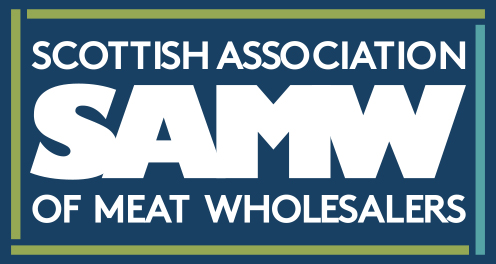FSA consultation completely fails to address key issues
The Food Standards Agency’s consultation on moving meat inspection charges onto a ‘full cost recovery’ basis fails completely to address the key issues of the Agency’s delivery of the necessary controls and the inefficiency and profligacy that goes with them.
That’s the headline view voiced by the Scottish Association of Meat Wholesalers (SAMW) in a four-page consultation response, submitted to FSA this week.
Signed by SAMW Executive Manger, Ian Anderson, the response also states that the current controls are neither ‘risk-based nor proportionate’ and are ‘grossly over-expensive’.
The Association makes it absolutely clear that its members are 100% committed to delivering safe food to consumers and that Food Business Operators (FBOs) accept all the standards and regulations connected with such a commitment. SAMW also says it has no difficulty with the ‘concept’ of full cost recovery.
The next point, however, is strongly made, namely that full cost recovery should only apply to a ‘properly run, efficient and properly resourced service delivered at a fair cost to industry’.
“That would be no different to other services which abattoirs require to buy-in,” said SAMW. “FBOs go to a range of suppliers and invite tenders so that they can test the quality and price of the goods they choose to buy. Alas, the FSA is a monopoly public sector provider of services. Therein lies the problem, with no competition or stimulus to be better. In effect the FSA can provide the service that suits them at whatever price they choose.
“The effect of the cost recovery policy, should it proceed, will be to put companies out of business and increase unemployment. Apart from food supply concerns, home production will be substituted by imports, many from Third Countries, which will not be subject to the same rigour of inspection as in the UK. Consequently, Scotland Food and Drink’s high level target of increasing the value of Scottish production from £10 – £12.5 billion by 2017 will be threatened because, apart from whisky, meat is a main contributor.”
SAMW also questions the Agency’s promise of future charging economies.
“The FSA says it will make £5 million of efficiency savings in the next four years but this is lacking in ambition and carries no guarantees that it will be honestly delivered,” said SAMW. “In any event, a service costing £50 million still requires the processing sector to pay double what it is paying now. This will ruin many businesses, even if it is phased in over three years.”
The consultation document’s silence on how full costs will be calculated, also draws sharp comment.
“EU legislation requires the FSA to publish how it calculates its charges and restricts what such charges may include,” said SAMW. “Any reasonably informed reader of the legislation would conclude that the intention is to restrict charges to the direct costs of inspection staff. It is clear that the FSA includes significantly more than that.
“A very large amount of the FSA’s costs are overheads of one kind or another. Despite numerous requests to FSA we have not received information on this. However we do know that a large part of this is the pension liability for employed staff. We also know that the overhead on the supply of meat inspectors charged to FBOs is inordinately high, as much as 50% of what FSA contracts them for. It would be morally wrong for FBOs to be expected to pick up the cost of pension liabilities held by the FSA and at the same time for the FSA to profiteer through add-ons to staff contract prices. Transparency on all aspects of FSA finances is a pre-requisite of any proposal by a public body seeking to transfer its costs to the private sector.
“This consultation is a false representation and gives no solid foundation on which to take decisions affecting the future of businesses and the employees who work for them. Before any change is made to charges, the whole system of inspection and the FSA’s over burdensome approach to delivery should be investigated independently.”
